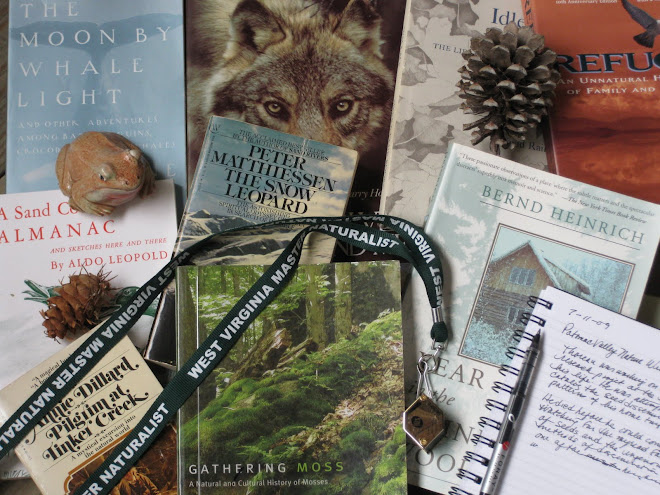 “There are some who can live without wild things, and some who cannot. These essays are the delights and dilemmas of one who cannot.”
“There are some who can live without wild things, and some who cannot. These essays are the delights and dilemmas of one who cannot.”"A thing is right when it tends to preserve the integrity, stability, and beauty of the biotic community. It is wrong when it tends otherwise."
- Aldo Leopold, A Sand County Almanac.
In January 2011 PVNWG celebrates the beginning of our third year (!) by paying tribute to Aldo Leopold and his work A Sand County Almanac. Leopold is a fitting author to follow on the heels of Pancake who plumbs the depths of wrongs perpetuated by the mining industry. He richly deserves his place next to Rachel Carson and Thoreau in the pantheon of environmental writer/heroes.
The summary below* is lifted from The Aldo Leopold Foundation website. This site has a wealth of information about Leopold and the influence he has had on conservation and our awareness of the biotic community--which only continues to grow. The Foundation is putting Leopold's ideas to work. It has developed some exciting projects to bring people together for the benefit of the environment. Please click on the link to check it out. And don't miss the moving preview of the film Green Fire: The Life and Legacy of Aldo Leopold.
*Admired by an ever-growing number of readers and imitated by hundreds of writers, A Sand County Almanac written by Aldo Leopold serves as one of the cornerstones for modern conservation science, policy, and ethics. First published by Oxford University Press in 1949 – one year after Leopold’s death – it has become a classic in the field equaled in its lasting stature only by Henry David Thoreau’s Walden.
While Aldo Leopold was writing in the 1940’s he could not have imagined the far-reaching impact his book would have. Over two million copies have been printed and it has been translated into nine languages.
Long respected in his own fields of forestry and wildlife management, Aldo Leopold was a prolific writer for scientific journals and conservation magazines. However, in 1937, sometime after his fifty-third birthday, Leopold became increasingly focused on reaching the general public with his conservation message. Working over a twelve-year period, Leopold wrote, re-wrote, and re-wrote again, essays that both informed people of how the natural world worked, and inspired people to take action to ensure the future health of the land and water that sustains all life.
Not only was this influential book late to develop in Leopold’s mind, it was very nearly never completed. A week after Oxford University Press agreed to publish his manuscript, titled “Great Possessions,” Aldo Leopold suffered a heart attack and died while fighting an escaped grass fire on a neighbor’s property.
Led by Luna Leopold, Aldo’s son, a group of Leopold’s family and colleagues collaborated on the final editing of the book, reluctantly agreeing to one significant change; renaming the book from Leopold’s working title “Great Possessions” to A Sand County Almanac and Sketches Here and There.
Through science, history, humor, and prose, Leopold utilizes A Sand County Almanac and its call for a Land Ethic to communicate the true connection between people and the natural world, with the hope that the readers will begin to treat the land with the love and respect it deserves.Date and venue for PVNWG January 2011 meeting to be announced. (NOTE: MEETING SCHEDULED FOR SUNDAY, JANUARY 9 at 2:00 PM. ) New members interested in attending please email pvnaturewriters@gmail.com for details.





















